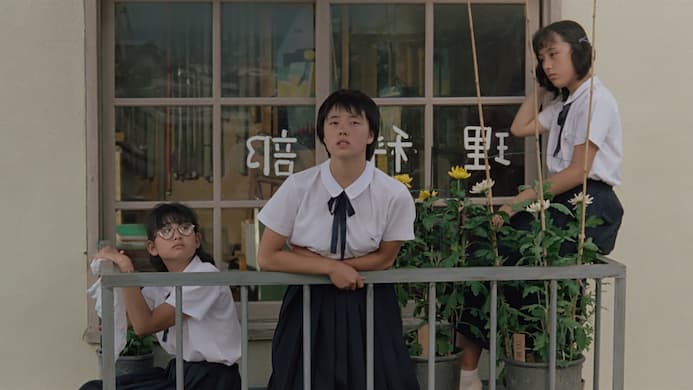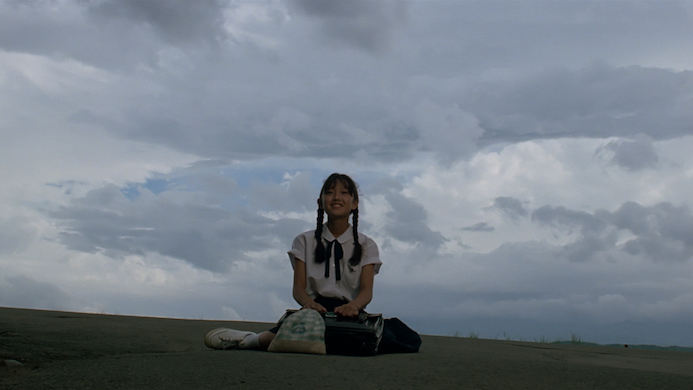Will the West Come To Appreciate Bernardo Bertolucci’s Assessment of ‘Typhoon Club’?
The esteemed Italian director had this to say about Japanese director Shinji Somai’s 1985 picture: ‘One of the most beautiful and touching teenage films I’ve ever seen. An absolutely devastating film.’

“Typhoon Club,” the 1985 film by Japanese director Shinji Somai (1948-2001), gets a lot of love in its country of origin. According to the blurb accompanying the movie’s upcoming revival at the IFC Center, “Typhoon Club” is considered the tenth best Japanese movie of all time by Kinema Junpo, the prestigious film journal that’s been up-and-running for more than a hundred years.
Given that the typical entries on this list include “Rashomon” (1950), “Tokyo Story” (1953), and “Floating Clouds” (1955), that’s high praise indeed.
But, then, that’s Japan. Notwithstanding the recent retrospective of Somai’s films at Manhattan’s Japan Society or the stray essay by this-or-that cineaste, “Typhoon Club” hasn’t received much notice here in the West. Out of curiosity, I surfed to that less-than-redoubtable repository of critical opinion, Rotten Tomatoes, and discovered one lonely listing for the film.
Yet if you put any weight behind the words of an esteemed Italian director, Bernardo Bertolucci, he had this to say about “Typhoon Club”: “One of the most beautiful and touching teenage films I’ve ever seen. An absolutely devastating film.” In a 2005 article published in Film International, Japanophile Luk van Haute suggests that Somai’s status as the “odd one out” is due, in part, to chronology. How was anyone supposed to take seriously “an ’80s director,” one who worked during a decade in which the Japanese cinema was, it seems, in a parlous state?
Only those in possession of a crystal ball know if the revival of “Typhoon Club” in its new 4K restoration will boost Somai’s international profile. It is a remarkable film and well worth wider recognition. Nonetheless, it runs contrary to so much of contemporary culture, not least in its attitude toward time.
Did Somai always favor long takes with the camera perched a good distance from the proceedings? The tempo of the picture is gradual, bordering on tentative, predicated, it feels, on how human beings acclimate themselves to situations and to each other. Sustained attention, in so many words, is required.

“Typhoon Club” records five days in the lives of a handful of junior high students ensconced in the outskirts of the country. The surrounding township is unlovely; their school is less than well managed. The lone adult on hand, Teacher Umemiya (Tomokazu Miura), barely qualifies as such, his attitude and behavior skewing younger than his 20-something years. Where are the parents? These tweens are out at all times of day engaging in activities that are questionable and, wouldn’t you know it, all too typical.
The unceasing tedium of summer is interrupted by an oncoming typhoon. Our protagonists find themselves holed up in the school as the storm hits land — with the exception, that is, of Yie (Yûki Kudô), who, after running away from home, finds herself at Tokyo hanging with a suspiciously young college student. Eagle-eyed fans of independent cinema may recognize Ms. Kudô from her role as Mitsuko in Jim Jarmusch’s “Mystery Train.”
What plays out is a remarkably naturalistic depiction of youth in all of its potentiality, exuberance, and confusion. The limits of friendship are tested, as are the boundaries of sexuality. Here’s where the old saw about art concealing art rings true.
Somai doesn’t telegraph anything: Characters are placed within our purview and we’re left to sort them out from their comings-and-goings. The studious Mikami (Yuichi Mikami) stands out, especially when he calls a clearly drunk Teacher Umemiya on the night of the storm and unleashes his enmity.
His ultimate fate is the lone moment in the film in which contrivance trumps authenticity and Somai’s touch fails him. Other than that, “Typhoon Club” is as poetic and true a film about the tweendom as any adult could hope for.

